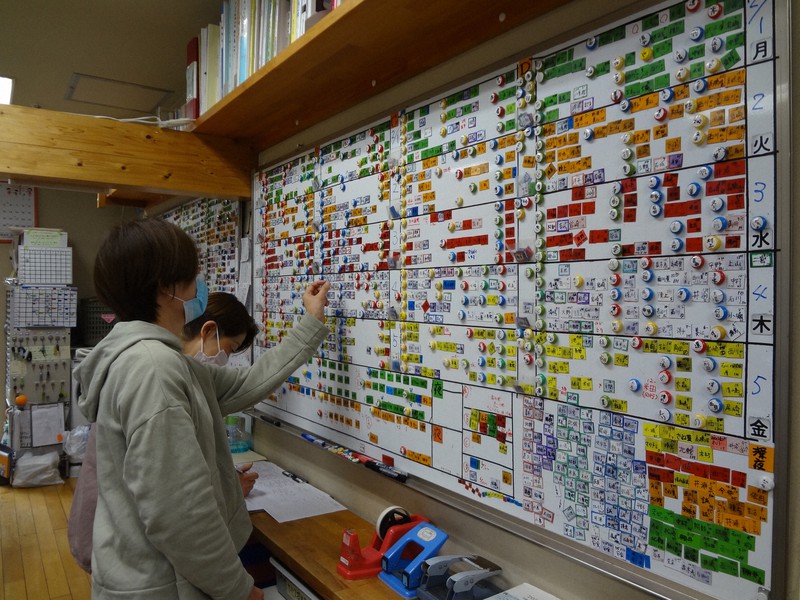2023-01-09 I believe it is a fairly universal truth that 'if you can't fix it with your own hands when it breaks, you can't use it'. [長年日記]
It's been a long time with being said "DX is needed", however,
"It is quite difficult to change from analog operation to DX in the field."
I am acutely aware of the fact.
It is hopelessly difficult to digitize an analog system, especially one that operates with "whiteboards" and "sticky notes.

(https://mainichi.jp/articles/20210330/k00/00m/040/249000c)
-----
Analog systems have many advantages.
Everyone can see it, everyone can monitor the situation, both macro and micro, and everyone can access (add, delete, modify) it.
I think the above photo speaks eloquently to the fact that 'if you impose digital on the field, you will definitely ruin the operation.
-----
As far as this photo scheduling system is concerned, all the current DX can do is
(A) To capture the contents of this whiteboard using a camera and recognize them using image processing and character recognition.
(B) Automatically to notify the person in charge of the day's schedule of the data read from it via e-mail or SNS.
(C) To alert the scheduler of any inconsistencies (duplications, misidentifications) to the manager.
I think that is the limit of what we can do.
-----
The important things to remember are that
- To continue to move both analog and digital, and to give up the idea of "100% complete digital migration.
- To create analog "clones" digitally over a long enough period of time (several years to 10 years).
In addition,
- In principle, the design, construction, and operation of digital systems should be carried out by the people on site themselves.
is important -- I know that last phrase is rather absurd.
I believe it is a fairly universal truth that 'if you can't fix it with your own hands when it breaks, you can't use it'.